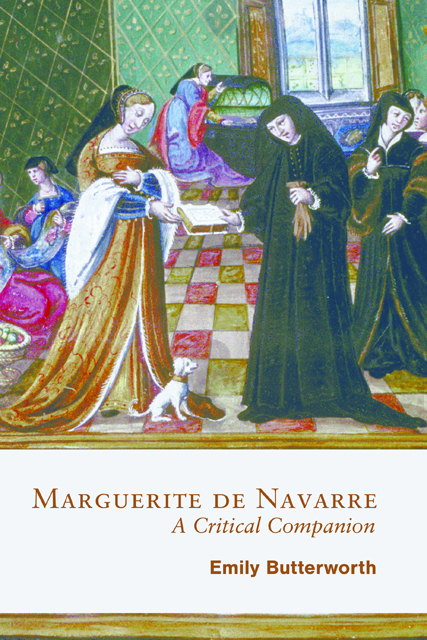Book contents
- Frontmatter
- Dedication
- Contents
- List of Illustrations
- Acknowledgements
- Note on Names and Editions
- Editions of Reference
- Introduction: A Brief Literary and Historical Chronology
- 1 Communities
- 2 Religion
- 3 Politics
- 4 Women and Men
- 5 Desire
- 6 Form and Technique
- Conclusion: Print and Public
- Bibliography
- Index
5 - Desire
Published online by Cambridge University Press: 20 December 2023
- Frontmatter
- Dedication
- Contents
- List of Illustrations
- Acknowledgements
- Note on Names and Editions
- Editions of Reference
- Introduction: A Brief Literary and Historical Chronology
- 1 Communities
- 2 Religion
- 3 Politics
- 4 Women and Men
- 5 Desire
- 6 Form and Technique
- Conclusion: Print and Public
- Bibliography
- Index
Summary
Desire is a frequent preoccupation in the Heptameron, which presents a generally pessimistic picture of its ravages and disruptions. Desire goes wrong more often than not in the stories told in Sarrance: its expression provokes violence and cruelty, it disrupts the peace, it flips into narcissism. Hircan represents desire as humanity’s fundamental flaw, synonymous with original sin, and thereby a natural, if aberrant, facet of human psychology. We have seen already how the move to present anything as ‘natural’ is contested in the Heptameron discussions, where other storytellers work to expose the ideological underpinnings of these kinds of claims. While desire is firmly defined as natural by Hircan and Simontaut, the stories themselves offer a different perspective, of desire refracted and contaminated by other concerns such as revenge, contempt, or pride, so that often the emphasis is not so much on desire as on power, and who has it.
This chapter will focus on the intersection of desire and power, and the related one of desire and gender. Maintaining the dialogue with Renaissance biology that we began in the last chapter, we will see how medical and philosophical discourses on gender difference are also present in the perception of desire. The centrality of desire to the Heptameron’s storytelling project, and its representation there as a flaw, has inspired psychoanalytic readings of the text, drawing on Sigmund Freud and, more frequently, Jacques Lacan to expose the workings of desire and its role as disrupter in social and psychical order. I consider stories that particularly lend themselves to this kind of reading here, before going on to discuss the solutions the storytellers propose for the trouble caused by desire. These solutions suggest replacing a worldly object of desire with a divine object that is the radical other of human imperfection and lack. While the Heptameron never quite settles whether this sublimation is possible, Marguerite’s Chansons spirituelles celebrate a mystical union between soul and God which is, if not easy or unproblematic, nevertheless presented as an aspiration and even a potential lived experience.
Desire and Gender: Medicine and Theology
The Aristotelian model of sex difference entailed implications for the relative control men and women could exercise over their desire.
- Type
- Chapter
- Information
- Marguerite de NavarreA Critical Companion, pp. 132 - 162Publisher: Boydell & BrewerPrint publication year: 2022

